#v supremacy
Explore tagged Tumblr posts
Text
cant believe my friends were talking about the N and Uzi handhold scene when V catching the bullet was RIGHT THERE
#disappointed but not surprised#i dont think I ever picked up my jaw from the floor#V supremacy#im still in denial#murder drones#glitch productions#n x uzi#serial designation n#uzi doorman#serial designation v#v serial designation#murder drones v#I love her your honor
32 notes
·
View notes
Text
lol I came out of a 5+ year hibernation, wholly ready to love V with a passion, only to find out half the fandom hates him now
... I am a lil upset if I'm honest and the wikihow for How to Not Be Bothered By People Not Sharing Your Sentiments About a Fictional Character didn't help
#personal#v#i'm trying so hard to find v content:(#maybe it's just my feed since it seems algorithm-based now?#you know what#it's fine#king of moral ambiguity and healing#us jihyun enjoyers can rejoice in having more of him to love to ourselves#if nothing else#his character design is pretty#is there nobody willing to draw him without being commissioned atp?#i don't mind paying artists for their work obviously#but i was hoping his tag wouldn't be a desert#and that we could all accept and love this messed up fictional man for who he is#while simultaneously placing him on a small pedestal bc i hate seeing how low his self worth is#he was a victim of domestic abuse and had ultimately good intentions#he may have made several mistakes#and is flawed#but that makes him so much more interesting#no?#because in addition to those trauma-based mistakes#he is also loving/thoughtful/virtuous/kind/gentle and has the prettiest voice#he's also the only one who doesn't jump into a relationship upon realizing he needs to work on some things#not just for himself either but#so he can love you as a healthy partner#fuck y'all i love v#v supremacy
3 notes
·
View notes
Text

5K notes
·
View notes
Text
EEPY NUVI CUDDLES BE UPON YE

would you believe me if I said this is technicallyyy the first nuvi art I ever made- and that I started it a little over a year ago only to get stuck on the pose/sketch- and never got around to finishing it until now-
haha yep anyways- I could ramble about this piece for a while but I'm restraining myself
#loose clothes sure are fun to draw when you haven't quite figured out how folds work yet (lying)#N with freckles supremacy#murder drones#uzi doorman#serial designation n#serial designation v#violentbitingbiscuits#biscuitbites#violetviolence#md envy#vuzi#nuzi#nuziv#nuvi#envuzi#vnuzi#HOW MANY VARIATIONS ARE THERE HLEP#digital art#peanut's doodles#this art had been haunting me for ages#I'm finally free#md golden irises au
1K notes
·
View notes
Text




I am punished by love I am punished by love
Punished - Ethel Cain
#ethel cain supremacy!!! this has been stewing for ages. v happy with the outcome#good omens#crowley#my gifs#usersugar#tsusermels#userlauren#usernobie#userzin#usereena#jemmablossom#userrlorelei#elinordash#crowleyanthonys#gifs: good omens#goodomensgifs#dailyineffablehusbands
290 notes
·
View notes
Text

Wip of the former jailbirds and their new friend 💕
#found fam is everything#this includes pets#rhino dino dog#star wars the bad batch#the bad batch fanart#the bad batch#the bad batch art#star wars fanart#sw tbb#clone trooper crosshair#the bad batch omega#tbb omega#viv art#v#viv wip#bad batch omega#bad batch season 3#crossdad supremacy#omega bad batch
508 notes
·
View notes
Text
They forced me onto ibis paint x 💀
Needless to say I hate it here, I hate drawing with my fingers for the love of it-
But what don't u do for the crab

The colors r not definitive, take this as a concept art of sorts
(I realized I made his body way too small, way after the turning back point 💀😭)
#crab boi#damn yall got me on that Crab Solar brainrot#sams#sun and moon show#fnaf dca#solar fanart#solar#sams solar#crab solar#mer!solar#mer!au#mermer#sams au#doodle#art#concept art#ig#Solar v-line supremacy
161 notes
·
View notes
Text

also on instagram & etsy
#stranger things#st fanart#[my art]#fanart#digital art#molesmartist#billy hargrove#dacre montgomery#bottom Billy supremacy thank u v much
139 notes
·
View notes
Text
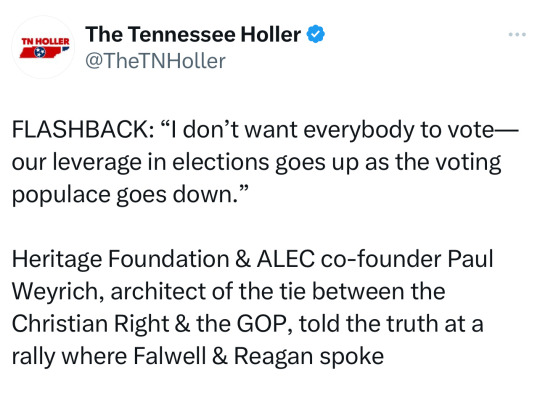
One of the most durable myths in recent history is that the religious right, the coalition of conservative evangelicals and fundamentalists, emerged as a political movement in response to the U.S. Supreme Court’s 1973 Roe v. Wade ruling legalizing abortion. The tale goes something like this: Evangelicals, who had been politically quiescent for decades, were so morally outraged by Roe that they resolved to organize in order to overturn it.

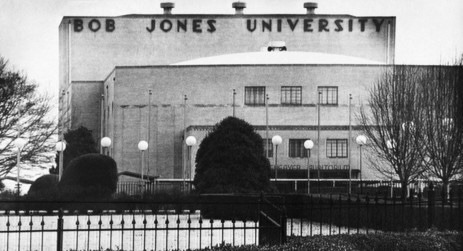
This myth of origins is oft repeated by the movement’s leaders. In his 2005 book, Jerry Falwell, the firebrand fundamentalist preacher, recounts his distress upon reading about the ruling in the Jan. 23, 1973, edition of the Lynchburg News: “I sat there staring at the Roe v. Wade story,” Falwell writes, “growing more and more fearful of the consequences of the Supreme Court’s act and wondering why so few voices had been raised against it.” Evangelicals, he decided, needed to organize.
Some of these anti- Roe crusaders even went so far as to call themselves “new abolitionists,” invoking their antebellum predecessors who had fought to eradicate slavery.
But the abortion myth quickly collapses under historical scrutiny. In fact, it wasn’t until 1979—a full six years after Roe—that evangelical leaders, at the behest of conservative activist Paul Weyrich, seized on abortion not for moral reasons, but as a rallying-cry to deny President Jimmy Carter a second term. Why? Because the anti-abortion crusade was more palatable than the religious right’s real motive: protecting segregated schools. So much for the new abolitionism.
Today, evangelicals make up the backbone of the pro-life movement, but it hasn’t always been so. Both before and for several years after Roe, evangelicals were overwhelmingly indifferent to the subject, which they considered a “Catholic issue.” In 1968, for instance, a symposium sponsored by the Christian Medical Society and Christianity Today, the flagship magazine of evangelicalism, refused to characterize abortion as sinful, citing “individual health, family welfare, and social responsibility” as justifications for ending a pregnancy. In 1971, delegates to the Southern Baptist Convention in St. Louis, Missouri, passed a resolution encouraging “Southern Baptists to work for legislation that will allow the possibility of abortion under such conditions as rape, incest, clear evidence of severe fetal deformity, and carefully ascertained evidence of the likelihood of damage to the emotional, mental, and physical health of the mother.” The convention, hardly a redoubt of liberal values, reaffirmed that position in 1974, one year after Roe, and again in 1976.
When the Roe decision was handed down, W. A. Criswell, the Southern Baptist Convention’s former president and pastor of First Baptist Church in Dallas, Texas—also one of the most famous fundamentalists of the 20th century—was pleased: “I have always felt that it was only after a child was born and had a life separate from its mother that it became an individual person,” he said, “and it has always, therefore, seemed to me that what is best for the mother and for the future should be allowed.”
Although a few evangelical voices, including Christianity Today magazine, mildly criticized the ruling, the overwhelming response was silence, even approval. Baptists, in particular, applauded the decision as an appropriate articulation of the division between church and state, between personal morality and state regulation of individual behavior. “Religious liberty, human equality and justice are advanced by the Supreme Court abortion decision,” wrote W. Barry Garrett of Baptist Press.
So what then were the real origins of the religious right? It turns out that the movement can trace its political roots back to a court ruling, but not Roe v. Wade.
In May 1969, a group of African-American parents in Holmes County, Mississippi, sued the Treasury Department to prevent three new whites-only K-12 private academies from securing full tax-exempt status, arguing that their discriminatory policies prevented them from being considered “charitable” institutions. The schools had been founded in the mid-1960s in response to the desegregation of public schools set in motion by the Brown v. Board of Education decision of 1954. In 1969, the first year of desegregation, the number of white students enrolled in public schools in Holmes County dropped from 771 to 28; the following year, that number fell to zero.
In Green v. Kennedy (David Kennedy was secretary of the treasury at the time), decided in January 1970, the plaintiffs won a preliminary injunction, which denied the “segregation academies” tax-exempt status until further review. In the meantime, the government was solidifying its position on such schools. Later that year, President Richard Nixon ordered the Internal Revenue Service to enact a new policy denying tax exemptions to all segregated schools in the United States. Under the provisions of Title VI of the Civil Rights Act, which forbade racial segregation and discrimination, discriminatory schools were not—by definition—“charitable” educational organizations, and therefore they had no claims to tax-exempt status; similarly, donations to such organizations would no longer qualify as tax-deductible contributions.
On June 30, 1971, the United States District Court for the District of Columbia issued its ruling in the case, now Green v. Connally (John Connally had replaced David Kennedy as secretary of the Treasury). The decision upheld the new IRS policy: “Under the Internal Revenue Code, properly construed, racially discriminatory private schools are not entitled to the Federal tax exemption provided for charitable, educational institutions, and persons making gifts to such schools are not entitled to the deductions provided in case of gifts to charitable, educational institutions.”
Paul Weyrich, the late religious conservative political activist and co-founder of the Heritage Foundation, saw his opening.
In the decades following World War II, evangelicals, especially white evangelicals in the North, had drifted toward the Republican Party—inclined in that direction by general Cold War anxieties, vestigial suspicions of Catholicism and well-known evangelist Billy Graham’s very public friendship with Dwight Eisenhower and Richard Nixon. Despite these predilections, though, evangelicals had largely stayed out of the political arena, at least in any organized way. If he could change that, Weyrich reasoned, their large numbers would constitute a formidable voting bloc—one that he could easily marshal behind conservative causes.
“The new political philosophy must be defined by us [conservatives] in moral terms, packaged in non-religious language, and propagated throughout the country by our new coalition,” Weyrich wrote in the mid-1970s. “When political power is achieved, the moral majority will have the opportunity to re-create this great nation.” Weyrich believed that the political possibilities of such a coalition were unlimited. “The leadership, moral philosophy, and workable vehicle are at hand just waiting to be blended and activated,” he wrote. “If the moral majority acts, results could well exceed our wildest dreams.”
But this hypothetical “moral majority” needed a catalyst—a standard around which to rally. For nearly two decades, Weyrich, by his own account, had been trying out different issues, hoping one might pique evangelical interest: pornography, prayer in schools, the proposed Equal Rights Amendment to the Constitution, even abortion. “I was trying to get these people interested in those issues and I utterly failed,” Weyrich recalled at a conference in 1990.
The Green v. Connally ruling provided a necessary first step: It captured the attention of evangelical leaders , especially as the IRS began sending questionnaires to church-related “segregation academies,” including Falwell’s own Lynchburg Christian School, inquiring about their racial policies. Falwell was furious. “In some states,” he famously complained, “It’s easier to open a massage parlor than a Christian school.”
One such school, Bob Jones University—a fundamentalist college in Greenville, South Carolina—was especially obdurate. The IRS had sent its first letter to Bob Jones University in November 1970 to ascertain whether or not it discriminated on the basis of race. The school responded defiantly: It did not admit African Americans.
Although Bob Jones Jr., the school’s founder, argued that racial segregation was mandated by the Bible, Falwell and Weyrich quickly sought to shift the grounds of the debate, framing their opposition in terms of religious freedom rather than in defense of racial segregation. For decades, evangelical leaders had boasted that because their educational institutions accepted no federal money (except for, of course, not having to pay taxes) the government could not tell them how to run their shops—whom to hire or not, whom to admit or reject.
The Civil Rights Act, however, changed that calculus.
(continue reading)
#politics#republicans#paul weyrich#abortion#religious riech#bob jones university#jerry falwell#christian nationalism#white supremacy#desegregation#project 2025#roe v wade#reproductive rights#reproductive justice#healthcare#brown v board of education#heritage foundation#moral majority#religious freedom#religion
195 notes
·
View notes
Text
How we feelin murder drones nation




#md#murder drones#murder drones fanart#md uzi#md nuzi#md n#md v#digital art#they’re dripped out#the exaggerated swagger of a robot teen#look at N’s hair bro I fucking can’t jdhjsbbsvs#n with highlights supremacy#nuzi#vuzi#md envy#fwoggieart
330 notes
·
View notes
Text
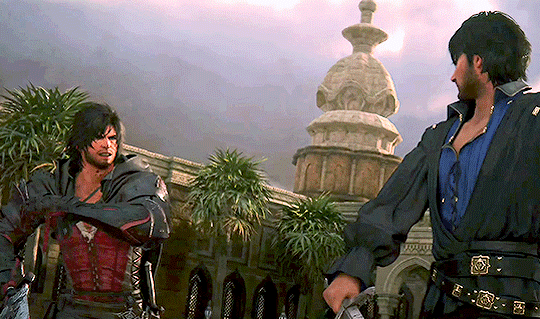


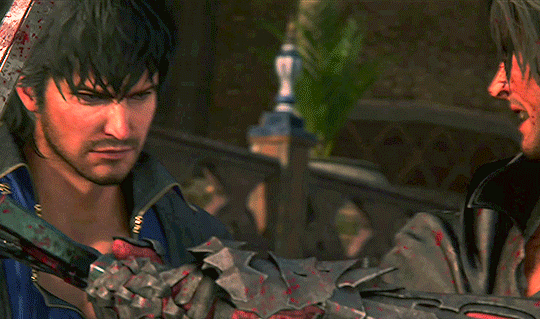

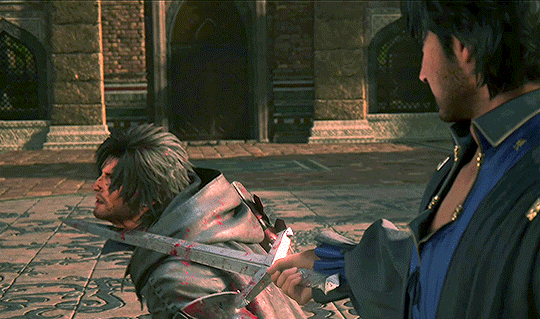
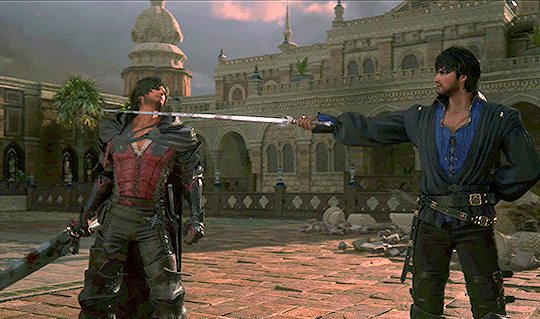
Wild and impetuous. I expected more of the boy who bested my lord commander. Yet I see why my master covets you so. The power within you, Mythos. The potential.
#ffxviedit#ffedit#clive rosfield#barnabas tharmr#barnaclive#if they have another ship name pls lmk!#i knew this was homoerotic but now i'm seeing the details#like in the third gif with the way barnabas smirks at clive#he loves toying with him and seeing him give his all only to be bested#and you can tell Barnabas *wants* to be outmatched by Clive#he wants Clive to prove his strength and his supremacy#this is' so fuckn gay#and i'm v attracted to the way that barnabas just shoves clive with his shoulder and it's so forceful#also the details of how bloodstained and gritty clive is vs. how pristine and clean barnabas is#& how barnabas fights with one arm behind his back#anyway ok#i stayed up entirely too long making this last night#it was worth it but omg i underestimated how much time i would sink into this#mine
330 notes
·
View notes
Text
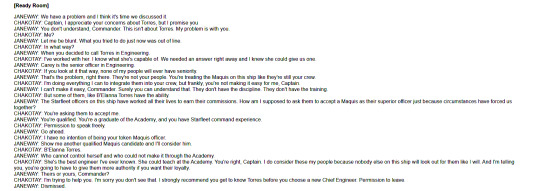
I hate when Chakotay is watered down to be Janeway's yes man because their disagreements are actually very interesting. [A lot of rambling analysis of this debate in particular below]
Chakotay in Parallax is very interesting in that he has to navigate a lot of different dynamics. Balance a lot of plates while being watched keenly by everyone around him. Immediately preceding this scene we see him ask B'Elanna for her opinion on the bridge - both as a chance to show her knowledge in his bid to make her chief engineer (because she wouldn't get a chance to otherwise as Janeway has clearly indicated that at this point she views B'Elanna as a troublemaker who won't be considered for the position) and because he just thinks she's a better engineer than Carey and wants the best possible chance of them succeeding. Janeway sees this as unacceptable. Carey is the chief engineer and so he should be called and Chakotay NOT asking for his opinion is an insult to Carey, Janeway, and might make the crew doubt Chakotay (and by extension the Maquis') loyalty to the Starfleet crew.

At this point it seems that to Janeway integration ["They're not your people"] means the path of least resistance, specifically tailored towards the Starfleet crew. She wants Chakotay by her side to keep the Maquis crew calm but also seems unwilling to consider them for important positions aboard the ship. Though she says that the Maquis are not Chakotay's people, not his crew, she certainly doesn't seem to consider them hers [Compare this to later instances where she stresses 'our' crew, here she simply says they aren't Chakotay's: Whose crew are they? Are they crew at all?]. This less leaves the impression of "We need to be a cohesive team" and more "You're not in charge here." She essentially accuses Chakotay of playing favorites. In her mind Chakotay's actions are not conducive to integrating the crews which would (again, in her mind) mean the Maquis being docile and accepting, obedient and content - not making trouble for the Starfleet crew. Chakotay counters Janeway's accusation with one of his own: That he IS trying to integrate them into the crew but her not allowing the Maquis any opportunity to prove themselves or succeed, not showing any trust in any of them (except, implicitly at this point, him) is making things difficult. At this point the Maquis crew are ready to mutiny on his word at any time. He knows this for a fact. Aside from that looming threat (the threat being that tensions are high and if nothing changes and they remain high there might be a mutiny even without his word) - Chakotay knows these people and trusts them. Though Starfleet and Janeway think of the Maquis as a violent bunch of criminal terrorists, Chakotay and a good number of the Maquis joined because they believed in the cause they were fighting for. These are people Chakotay knows WILL fight fiercely for what they believe in and conversely, AGAINST what they perceive as injustice. Even if they're not in the majority - they're used to picking fights which seem impossible to win. At this point Janeway admits that she ISN'T making it easy for Chakotay to integrate the Maquis - specifically talking about practical concerns; how she doesn't feel she can let Maquis crew have roles of importance on the ship because they lack the ability to hold them. "They don't have the discipline, they don't have the training," - asserting that they just aren't prepared for any such roles and it doesn't have to do with them being Maquis specifically. Ostensibly, she's treating them as she might treat anyone unqualified for the job.

Chakotay maintains that some of them, like B'Elanna, have the ability to be trained - challenging her point by saying that IF they're trained there's no reason for any Maquis member NOT to be given a more prominent role on the ship. He isn't suggesting they just unqualified people important jobs. If the problem is that they aren't trained, let's train them. These people have the ability to succeed if you give them the tools they need and a fair chance, he insists. Janeway then switches gears and her argument becomes not "The Maquis are untrained so they can't be given those jobs" but "The Maquis crew are unworthy of those jobs when compared to Starfleet personnel" saying that it'll cause insult and upset among the Starfleet crew if any member of the Maquis were to be promoted above them. Again, her idea of integration is based more on Maquis subservience to the Starfleet crew than it is the two crews working together. (Not that I believe she looks at it that way, it's just where her 'path of least resistance' leads) - though she accuses Chakotay of being too focused on "his" crew, she is admitting here that she believes her real crew are the Starfleet officers aboard, not the Maquis. She also admits here that the system she wishes to maintain (and is asking Chakotay to enforce) is one where there will ostensibly never be any chance of a Maquis crew member being promoted because no Maquis crew member will ever be more qualified, more worthy, than a member of Starfleet. We can see how it'd be difficult for Chakotay to convince his crew to remain calm under these circumstances. There's also Tuvok's behavior toward him at the beginning of the episode where the Vulcan nearly goes over Chakotay's head and when he doesn't do so (as Chakotay reminds him that HE'S the superior officer, the First Officer in fact,) Tuvok acts as if him backing down (partially) and conceding (partially) to Chakotay's authority is a favor to Chakotay.

Tuvok in this conversation is downright insubordinate to Chakotay. Despite Chakotay being the first officer, he doesn't take what he says seriously, argues that his own opinion on what should be done should be followed rather than Chakotay's, lectures the first officer about his conduct, and then almost seems to threaten him with a report. In Starfleet's rigidly hierarchical rules, acting like this to a superior officer (ESPECIALLY the first officer) wouldn't be tolerated and Tuvok knows this perfectly well. He isn't a rebellious character and clearly in other episodes adheres to these Starfleet hierarchies and codes of conduct very strictly. He values them highly. But Chakotay, a Maquis, shouldn't be First Officer. Why should he be given respect for a title he didn't earn? [Affirming Janeway's argument about how Starfleet officers won't be eager to follow a Maquis senior officer] Even though Chakotay tells Tuvok off for it ["I don't have to explain myself to you"] he doesn't threaten to put Tuvok on report or explicitly mention his insubordination. It's unclear if this is Chakotay's personality or if he just doesn't feel he CAN do that. Tuvok is one of the three most senior officers aboard and very close to Janeway. Chakotay has to think of the optics of any situation at all times - we see seconds after this conversation that rumors have already started swirling around B'Elanna being relegated to quarters that've fanned the flames of mutiny. Though we know Tuvok has personal reasons for behaving the way he does toward Chakotay (which he later admits), I really don't think it'd be out of the ordinary for this to be how most Starfleet personnel would treat the Maquis if they weren't outright hostile: Like they're only pretend crewmen. To a lesser extent we even see this with Janeway: In the following staff meeting, she clearly doesn't consider B'Elanna a viable option when Chakotay brings her up and almost ignores the suggestion entirely.

It also, again, leaves Chakotay in an impossible position. If he doesn't protect and fight for the Maquis crew, they won't ever be considered a true part of the crew and dissatisfaction will likely spread among them. Dissatisfaction which the Starfleet crew will then use to further label the Maquis as insubordinate, uncontrollable, unfit. Not to mention that if he doesn't advocate for them, he might lose their trust. However, if he DOES try to help the Maquis crew advance the Starfleet crew will view this as 'favoritism' and will further distrust him, won't respect the people he puts forth as worthy. Janeway seems to be intent on not advocating for any of the Maquis crew and also seems unwilling to ask that the Starfleet crew grant leniency. She implies that the Maquis crew need to learn to get in line and keep quiet and it seems almost like [we must remember the optics] she has Chakotay as the only Maquis in a position of power to facilitate that. Chakotay recognizes and pushes against that, saying that he won't just be her token Maquis - there only so she can point to him and say "See? We don't discriminate against the Maquis here." effectively a tool used to shut down any arguments of unfair treatment and a tool to quell the Maquis if any talk of mutiny DOES arise. In this model, Janeway can just tell Chakotay to calm them down and they'll listen because they trust him. She also doesn't have to really listen to anything he says: A token First Officer has no authority; his words don't hold weight. [Chakotay isn't Maquis anymore, they aren't his crew anymore - ok. What is he then? What are they? Nothing, without respect.] This plan seems untenable, as much as Janeway frames it as sensible: "I can't make it easy, Commander. Surely you can understand that," and alternatives as impossible "How am I supposed to ask them to accept a Maquis as their superior officer just because circumstances have forced us together?" - in the long run, how would this be sustainable? In any power structure, you cannot expect a group of people you're unwilling to grant trust or agency to obediently follow you forever. This proposed form of 'integration' in which the Maquis are kept on the bottom rung and told intermittently to stay there quietly by the only one of them granted permission to stand at the top would never be sustainable - especially with a group like the Maquis who again, were founded on the belief that its members should fight against inequity and are already on the verge of mutiny.
I specifically find the statement "How am I supposed to ask them to accept a Maquis as their superior officer just because circumstances have forced us together?" to be interesting because personally I'd say that being forced together for the rest of almost everyone's natural life is a pretty good reason to ask people to adapt and Janeway does understand this but only applies it to the Maquis - the Maquis are the ones who have to adapt, not Starfleet. The only thing the Starfleet crew have to do is tolerate their presence on board.

At this point Janeway again claims that if Chakotay can show her a 'qualified' Maquis candidate she'll consider them. I believe this is true but we already know that Janeway's standards for qualification will likely not fit the vast majority of the Maquis and Chakotay ignores the claim in favor of putting forth B'Elanna again, firmly. Janeway predictably dismisses her as unqualified and Chakotay disagrees, arguing that he knows her. He's worked with her. He KNOWS that B'Elanna can excel at the job even if she doesn't meet Starfleet/Janeway's qualifications. He doesn't value those qualifications over what he's observed about her - just as he didn't value Carey's title over what he knew about the gap between his and B'Elanna's abilities. Then, Chakotay switches gears. He admits that Janeway's right - he does view the Maquis as his crew but that's because Janeway (almost self admittingly) doesn't and if he doesn't, who will they have? [What kind of captain, kind of man, would he be?] "You're going to have to give them more authority if you want their loyalty." "Theirs or yours, Commander?" Janeway frames Chakotay's words pointing out the flaws in this plan which I outlined earlier, as almost a threat (if she doesn't have Chakotay's loyalty it'll most definitely mean mutiny). Chakotay asserts that it wasn't a threat, he's only trying to help by telling her how the Maquis crew will react to what she's telling him. "I'm sorry you can't see that" - not an apology for what he said but that she isn't willing to budge, not willing to listen to him and acknowledge that she might be as biased towards her crew as he is towards his. Chakotay is trying his best to acclimate his crew but if Janeway isn't willing to do the same, to talk to her people as he's talking to his, then this will not end well and that isn't a threat. It's just the reality of the situation. He then asks permission to leave, showing he is willing to observe Starfleet protocol (just as when he asked permission to speak freely), and Janeway lets him go, exhaling at the intensity of their debate when alone in her ready room.
#J/C is not interesting to me when they're strifelessly playing house or Chakotay is her lovesick yesman who'll do whatever she says#Kathryn Janeway#Chakotay#I really wish they'd kept up this kind of tension between the crews and used Tuvok/Janeway/Tuvok as like a microcosm of that tension#it'd be so good!!#Tuvok#<- he's there too#chara analysis#star trek voyager#st voy#Is this the only episode they call the ship 'The Voyager' ??#Also hearing Harry call Tom 'Mr Paris' is funny - early seasons voyager you have my heart early seasons voy supremacy#ANYWAY - that's beside the point#I do like how the maquis v starfleet tension is handled in this episode#I love how we see everyone start working together and relationships begin to form#How once B'Elanna shows her stuff Janeway is almost immediately intrigued and excited & how B'Elanna feeds off that excitement#The Doctor: -annoyed annoyed complaining complaining snarky comment- ugh I can't believe I have to help with something STUPID#Kes: You're very sensitive aren't you~? /gen /pos#The Doctor: ???? um ..... haha. idk. anyway I'm glad I could help :)#'how can we be seeing a reflection of something that we hadn't even done yet?' Voyager I love you MWAH#Tom Janeway B'Elanna: -temporal mechanics- / Harry: .... so how do we get out???#SUUCKS that in later seasons B'Elanna & Chakotay's relationship isn't focused on anymore but I mean. Every poc is pushed aside in later#seasons. But here you can see how much Chakotay believes in her and wants her to succeed!!! No wonder she likes him so much#He was probably one of the first people to really believe in her and SHOW IT and now Janeway's doing the same thing <3#My above post may paint Janeway somewhat negatively but it's only in the 'character flaws and being wrong about things means you have#a chance to grow' way - as soon as B'Elanna shows her potential Janeway wants to encourage it#God B'Elanna's so pretty#I forgot Seska was on the bridge!#'many of your teachers thought you had the potential to be an outstanding officer' SOMEONE SHOULD HAVETOLD HEEEER!!!!!!!!#WHY DID NO ONE TELL HEEER!!!!!
36 notes
·
View notes
Text

Who needs a dommy mommy trans girlfriend?
#miss v#trans supremacy#trans superiority#transfem superiority#transfem supremacy#t4t nsft#t4t#t4t ns/fw#transgirl nsft#t4t yearning
1K notes
·
View notes
Text
Day 15: Dagger
But even with the cuts, he can’t stop himself from touching his knife every time he lies down. Even during the day, he reaches inside his pocket, where it’s secure in a sheathe, and touches the hilt. It’s reassuring to feel it there.
It’s a gift, he thinks. A courting gift. If it was only for practicality, Voldemort wouldn’t have bothered to carve such a nice hilt.
•
From chapter 2 of @metalomagnetic’s Prison Blues

#inktober#inktober2023#hp#harry potter#voldemort#tomarrymort#tom riddle#tomarry#my art#fanart#chapter 3 of this fic did something irreversible to me#I’m being so fr…I thought about it every day for probably a month after I read it#Tom’s omega experience just tore a hole in me I guess idk#like V is the baddest sickest omega on the planet but damn he makes me ache#also himbo puppy alpha harry supremacy >>>
291 notes
·
View notes
Text
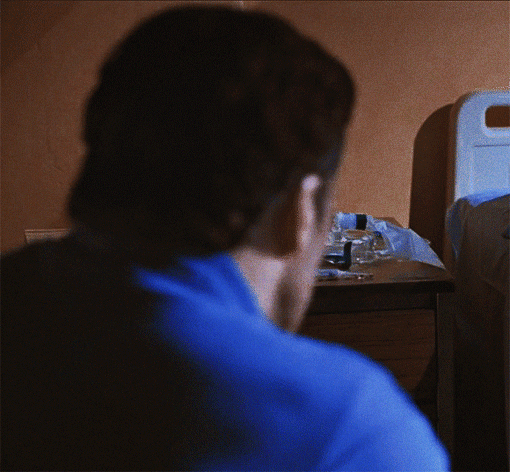



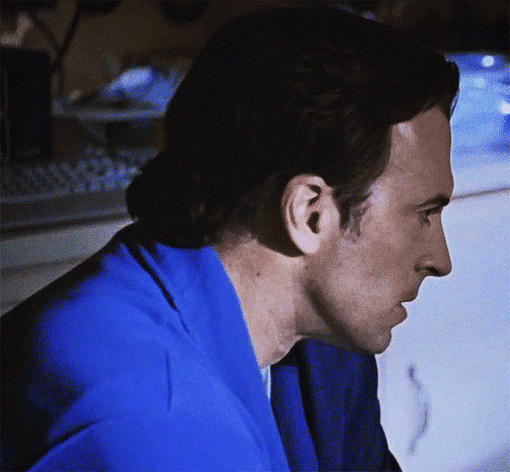
SCOTT PATTERSON as PETER STRAHM SAW V (2008) dir. David Hackl
#(sighing dreamily) there are so many things wrong with him#saw v#sawedit#horroredit#filmedit#peter strahm#scott patterson#could not find a gifset of my fave strahm-a-llama-ding-dong scene so I decided 2 make one myself lmao#mine#miserable and BITCHY blue bathrobe-supremacy#he's so. everything 2 me. microwaving him microwaving him#special agent strahm I would've done tons of cocaine w/u and kept u alive forever#that's my MAN. tbh
150 notes
·
View notes
Text


#spellblade supremacy#my ocs#skyrim#the elder scrolls skyrim#skyrim mods#tesblr#the elder scrolls#skyrim kaidan#elder scrolls skyrim#tes#tes oc#tes v skyrim#elder scrolls#skyrim screenshots#skyrim screencaps#screen archery#skyrim special edition#skyrim scenery#tesv screenshot#modded skyrim#skyrim the elder scrolls#virtual photography#tes skyrim#game scenery
25 notes
·
View notes